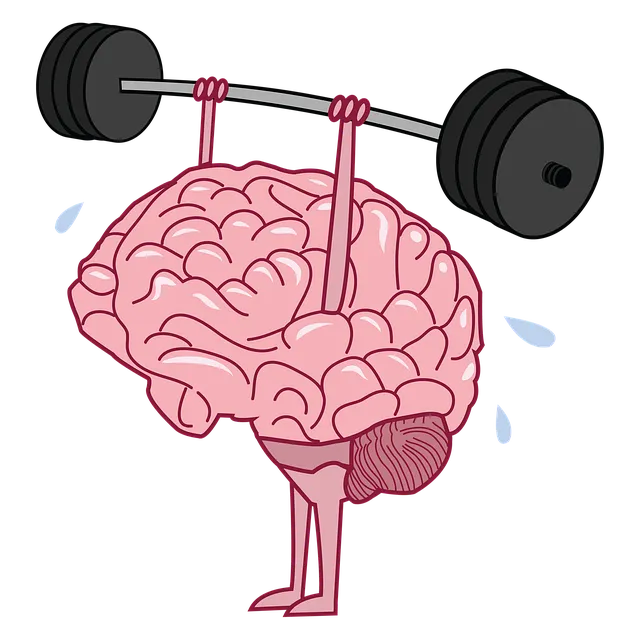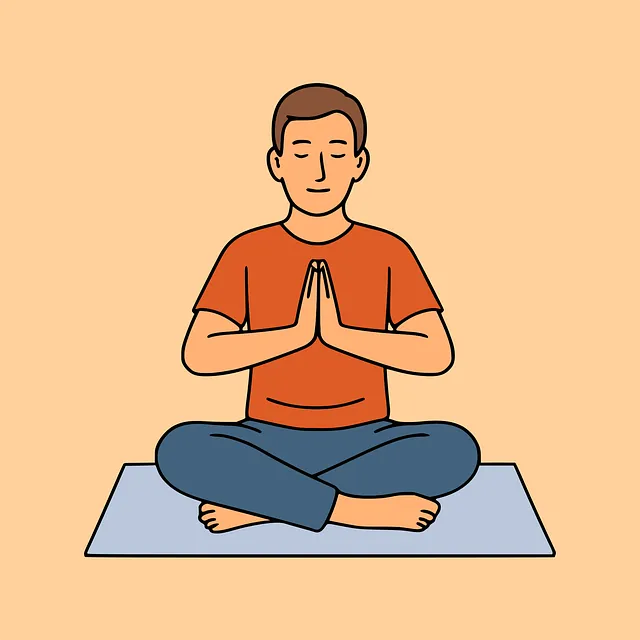Broomfield Kaiser Permanente behavioral health services tackle anxiety through evidence-based Cognitive Behavioral Therapy (CBT), mindfulness, and lifestyle changes. Their holistic approach focuses on symptom reduction and long-term emotional well-being, offering tailored support for diverse anxiety manifestations. They encourage self-care routines, stress management techniques, and healthy lifestyles to empower individuals in managing anxiety effectively and preventing burnout, with peer groups and therapy providing community and coping strategies.
Anxiety is a common yet manageable condition that affects millions worldwide. If you’re feeling overwhelmed by persistent worry or fear, understanding your anxiety and employing effective management techniques can significantly improve your quality of life. This guide explores various strategies to combat anxiety, including cognitive behavioral therapy (CBT), mindfulness practices, lifestyle adjustments, and the power of support systems, all inspired by Broomfield Kaiser Permanente behavioral health services.
- Understanding Anxiety: Recognizing the Signs and Symptoms
- Cognitive Behavioral Therapy (CBT): A Powerful Tool for Managing Anxiety
- Mindfulness and Meditation: Finding Calm in a Chaotic World
- Lifestyle Changes for Better Mental Health: Exercise, Diet, and Sleep
- Support Systems: The Role of Therapy, Peer Groups, and Self-Care
Understanding Anxiety: Recognizing the Signs and Symptoms

Anxiety is a natural response to stress, but when it becomes overwhelming and persistent, it can significantly impact daily life. Recognizing the signs and symptoms of anxiety is the first step towards managing it effectively. Broomfield Kaiser Permanente behavioral health services emphasize that anxiety disorders manifest in various ways, including physical sensations like rapid heartbeat, sweating, and shortness of breath, as well as cognitive symptoms such as excessive worrying, rumination, and difficulty concentrating. These feelings can be accompanied by avoidance behaviors or restlessness, making daily tasks challenging.
Understanding these signs is crucial for effective risk management planning in mental health professionals. The goal is not just to alleviate symptoms but also to foster emotional well-being promotion techniques that empower individuals to manage anxiety in the long term. This involves providing Trauma Support Services tailored to each person’s unique needs, ensuring they feel heard and supported in navigating their anxious experiences.
Cognitive Behavioral Therapy (CBT): A Powerful Tool for Managing Anxiety

Cognitive Behavioral Therapy (CBT) is a highly effective and evidence-based approach to managing anxiety, offered by Broomfield Kaiser Permanente behavioral health services. This therapy focuses on identifying and changing negative thought patterns and behaviors that contribute to anxiety disorders. By challenging unhelpful thoughts and replacing them with more realistic and positive ones, CBT empowers individuals to cope with anxiety-provoking situations in a healthier way. It teaches valuable coping skills development, enabling people to manage their symptoms and improve their overall well-being.
This technique isn’t just limited to treating anxiety; it’s also beneficial for burnout prevention strategies for healthcare providers, helping them maintain resilience and balance. Incorporating self-care routine development for better mental health is a key aspect of CBT, encouraging individuals to prioritize their emotional needs alongside their physical ones. Through CBT, one can learn effective stress management techniques, improve sleep quality, and enhance overall mental health, all of which are crucial aspects of Broomfield Kaiser Permanente’s comprehensive behavioral health services.
Mindfulness and Meditation: Finding Calm in a Chaotic World

In today’s fast-paced world, where chaos and stress often feel overwhelming, mindfulness and meditation offer a sanctuary of calm. Broomfield Kaiser Permanente behavioral health services emphasize these practices as powerful tools for managing anxiety and cultivating emotional resilience. By training the mind to focus on the present moment, mindfulness helps individuals detach from anxious thoughts and negative self-talk. It’s not about stopping thoughts but rather observing them without judgment, fostering a sense of detachment and clarity.
Meditation complements this process by providing structured moments for quiet reflection and relaxation. Techniques like guided meditation and breathing exercises promote the development of coping skills, enhancing one’s ability to navigate stressful situations. This practice supports burnout prevention efforts, allowing individuals to find inner peace amidst life’s challenges. Moreover, consistent mindfulness and meditation can facilitate emotional healing processes, leading to improved mental well-being.
Lifestyle Changes for Better Mental Health: Exercise, Diet, and Sleep

At Broomfield Kaiser Permanente behavioral health services, we understand that making lifestyle changes can significantly contribute to better mental health. Regular exercise is a powerful tool for anxiety management, as it stimulates the release of endorphins, which are natural stress fighters and mood elevators. Incorporating physical activities into your routine, whether it’s a brisk walk, yoga, or joining a sports team, can help reduce symptoms of anxiety and promote overall well-being.
Diet plays another crucial role in mental health management. A balanced diet rich in fruits, vegetables, whole grains, and lean proteins can positively impact brain chemistry, thereby enhancing resilience against anxiety and other mental illnesses. Additionally, reducing the intake of sugary foods and caffeine can help stabilize mood swings and improve sleep quality. Together with adequate sleep, which is essential for emotional regulation, these dietary and lifestyle changes can form a robust foundation for better mental health, as supported by Mental Illness Stigma Reduction Efforts and resilience-building practices. Cultivating positive thinking through mindfulness or cognitive-behavioral techniques further strengthens this holistic approach to managing anxiety.
Support Systems: The Role of Therapy, Peer Groups, and Self-Care

Support systems play a pivotal role in anxiety management, offering individuals valuable resources to navigate their mental health journey. Therapy, facilitated by professionals like those found at Broomfield Kaiser Permanente behavioral health services, provides a safe space for individuals to explore and understand their anxiety triggers and develop effective coping strategies. Through evidence-based practices, such as cognitive-behavioral therapy (CBT), therapists empower patients to challenge negative thought patterns and learn relaxation techniques, including mindfulness meditation, to soothe the mind and body.
Peer groups also form an integral part of support systems by fostering a sense of community and shared understanding. Connecting with others who have experienced anxiety can reduce feelings of isolation and provide a platform for exchange of strategies and encouragement. Additionally, self-care practices, often encouraged by healthcare providers as part of burnout prevention efforts, empower individuals to take control of their mental well-being. This includes adopting healthy lifestyle habits, engaging in stress-reducing activities like mindfulness meditation, and seeking support when needed, all of which contribute to a holistic approach to anxiety management.
Anxiety management is a comprehensive journey, and with the right tools, it’s a path that can be navigated effectively. By combining evidence-based practices like CBT, mindfulness techniques, and lifestyle adjustments, individuals can gain control over their anxiety. Broomfield Kaiser Permanente behavioral health services emphasize the importance of a holistic approach, offering resources for therapy, peer support, and self-care to foster resilience and overall mental well-being. With dedication and the right strategies, managing anxiety is achievable, leading to a calmer and more fulfilling life.






